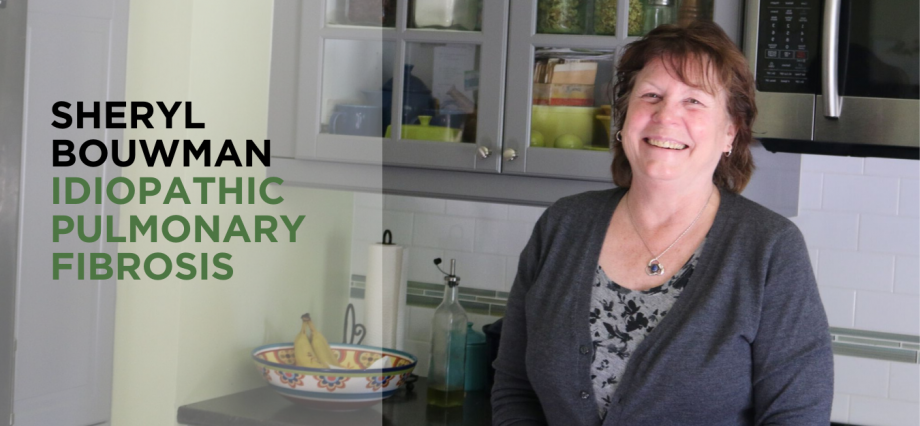I’ve been diagnosed with a rare lung disease. While I wait for a transplant, I find strength through structured exercise and the support of fellow patients.
When did your lung journey begin?
In the fall of 2014, I was struck by severe lower back pain that just wouldn’t go away. I went looking for answers but doctors were unsure of the cause. A range of blood work, x-rays and a CT scan, led six months later to a diagnosis of IPF (Idiopathic Pulmonary Fibrosis) – the most common form of interstitial lung disease.
An umbrella term for a large group of rare disorders that affect the tissue and space around the air sacs of the lungs, interstitial lung disease can cause scarring and stiffness in the lungs, making it more and more difficult to breathe as the disease progresses. At present no cure exists, leaving newly diagnosed patients and their families understandably fearful. While there are some treatments that help to slow progression, prognosis is generally three to five years without a lung transplant.
When were you diagnosed with IPF?
In October of 2014, I felt a pain coming from my lower left back area. I kept trying to stretch it out, but had no success. I went to emergency some time later and they did an x-ray, blood work and a CT Scan. Fast forward to May of 2015 when I was referred to Dr. Khalil, it was then determined that I had IPF.
What helped you at the onset of your diagnosis?
In terms of improving quality of life, pulmonary rehabilitation is one of few therapies known to help. It was the first thing my doctor suggested upon diagnosing me with IPF. My doctor called Ridge Meadows Hospital in Maple Ridge and got me into their pulmonary rehab program almost immediately.
Once in the program, I learned to reduce my symptoms through exercise, diet modification and breath training. Best of all, I did so alongside other patients facing the same challenges. Going to my pulmonary rehab group, I didn’t feel quite so alone. I met wonderful people coping with the same disease and with the same fears and frustrations. We were able to laugh, share stories and support one another.
What have been some of the challenges for you living with IPF?
Ultimately, the only hope for patients is a lung transplant, for which they must meet certain criteria to be eligible. Fortunately, I was eligible and went on the waiting list January 2017. No longer able to work given the severity of IPF, I passed the time making jewellery, socializing with family and friends and cooking favourite recipes. I also cherish the extra time I can now spend with my grandchild.
While we await that magic call announcing they’ve found a lung match, my husband and I have put our retirement plans on hold. In the meantime, I continue exercising as regularly as I can with my friends from pulmonary rehab. That helps enormously. While it’s not easy, it’s all one can do. I have shortness of breath and fatigue and am on oxygen. It's frustrating not being able to work. I have a fear of dying and often feel lonely. I have become very emotional as well.
Do you feel you have adequate care from Doctors and the Health System in general?
I feel doctors are over worked. Other than that, I am very happy with the care I have received from the lung doctors in regard to my condition.

